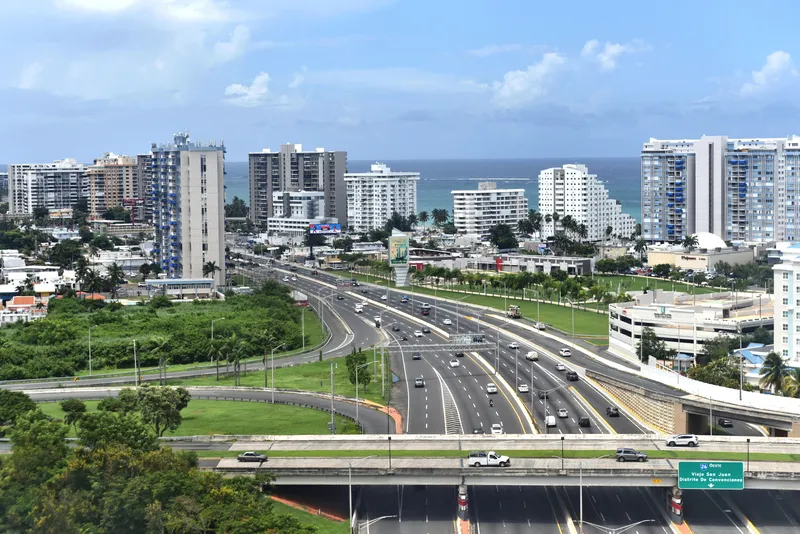
Emovis, part of Abertis Mobility Services, has implemented a roadside solution for Puerto Rico’s Teodoro Moscoso Bridge, operated by Autopistas Metropolitanas de Puerto Rico.
The Emovis solution is maximising toll compliance through improved vehicle detection and identification systems. Emovis said that the deployment is part of a continued partnership with Autopistas Metropolitanas de Puerto Rico (Metropistas).
Puerto Rico is a Caribbean island which is also a US territory. Since opening in 1994, the 2.25km low-level trestle girder Teodoro Moscoso Bridge has been operated by Abertis. It is an extension of PR-17, also known as the Jesus T. Piñero Expressway, and connects with the Román Baldorioty de Castro Expressway (PR-26).
It crosses the San José Lagoon to link the district of Rio Piedras in San Juan to Isla Verde Carolina. It is an entrance to the Luis Muñoz Marín International Airport and processes over eight million transactions annually. A current upgrading project has added two lanes and improved the four existing lanes.
As part of the solution, cameras with external illuminators have been deployed and that can read even dirty licence plates at night. All of the equipment previously in the lane has been moved, reducing the risk of equipment damage from vehicles. The legacy equipment had more than 10 cabinets of networking and equipment servers supporting four lanes. All the equipment is now in a single server rack.
“This latest Teodoro Moscoso Bridge project will reduce tolling incidents and congestion, thus providing greater reliability and safety for drivers,” said Fernández Rodes, chief executive of Metropistas.
Metropistas, which has been collaborating with Abertis since 2011 through a public-private partnership, operates several major highways throughout Puerto Rico.
“Metropistas has been a terrific partner over the years, demonstrating a strong commitment to continuous improvement while investing in the best technology available,” said Christian Barrientos, chief executive of Abertis Mobility Services. “Our latest solution for the Teodoro Moscoso Bridge will enable us to create even greater impact for the many stakeholders that connect to this project.”
The consortium Metropistas, composed of Abertis and its investment partners, is responsible for operating, rehabilitate and preserve infrastructure conditions and ensure the quality of service on the highways it operates. Apart from the Teodoro Moscoso Bridge, Metropistas concessions include Puerto Rico Metropolitan Highways PR-22 and PR-5 as well as Puerto Rico Tollroads PR-52, PR-66, PR-53 and PR-20.








